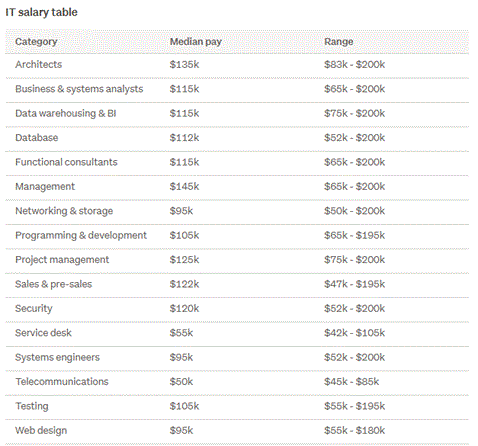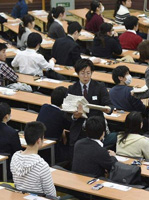2013年12月英语六级真题及答案(中国园林篇)
PartI Writing (30 minutes)
(请于正式开考后半小时内完成该部分,之后将进行听力考试)
Directions:For this part, youare allowed 30 minutes to write an essay on happiness by referring to thesaying“Happiness is not the absence of problems, but the ability to dealwith them.”You can cite examples toillustrate your point and then explain how you can develop your ability todeal with problems and be happy. You should writeat least 150 words but no more than 200 words.
Part II Listening Comprehension (30 minutes)
2013年12月英语六级听力真题音频点击收听
Section A
Directions:In this section,you will hear 8 short conversations and 2 long conversations. At theend of each conversation, one or more questions will be asked about whatwas said. Both the conversation and the questions will be spoken only once. After each question there will be a pause. During the pause, you must read the four choices marked A), B), C) and D), and decidewhich is the best answer. Then mark the corresponding letter on Answer Sheet1 with a single line through the centre.
注意:此部分试题请在答题卡1 上作答。
1. A) The rock band needs morehours of practice.
B) The rock bandis going to play here for a month.
C) Their hard workhas resulted in a big success.
D) He appreciatesthe woman’s help with the band.
2. A)Go on a diving tour in Europe. C) Travel overseas onhis own.
B) Add 300 dollarsto his budget. D) Join a packagetour to Mexico.
3. A)In case some problem should occur. C)To avoid more work later on.
B) Something unexpected has happened. D) To make better preparations.
4. A)The woman asked for a free pass to try out the facilities.
B) The man isgoing to renew his membership in a fitness center.
C) The woman cangive the man a discount if he joins the club now.
D) The man can tryout the facilities before he becomes a member.
5. A)He is not afraid of challenge. B) He is not fitto study science.
C) He is worriedabout the test. D) He is going todrop the physics course
6. A)Pay for part of the picnic food. C) Buy somethingspecial for Gary.
B) Invite Gary’s family to dinner. D) Take some food tothe picnic.
7. A) Bus drivers’ working conditions. C)Public transportation.
B) A labor disputeat a bus company. D) A corporatetakeover.
8. A)The bank statement. C) The payment foran order.
B) Their sales overseas. D) The check justdeposited.
Questions 9 to 11are based on theconversation you have just heard.
9. A) Ahotel receptionist. C) A shopassistant.
B) A private secretary. D) A salesmanager.
10. A)Voice. C) Appearance.
B) Intelligence. D) Manners.
11. A)Arrange one more interview. C) Report thematter to their boss.
B) Offer the job to David Wallace. D) Hire BarbaraJones on a trial basis.
Questions 12 to 15are based on theconversation you have just heard.
12. A)He invented the refrigerator. C) He got a degreein Mathematics.
B) He patented his first invention. D) He was admittedto university.
13. A)He distinguished himself in low temperature physics.
B) He fell in lovewith Natasha Willoughby.
C) He became aprofessor of Mathematics.
D) He started towork on refrigeration.
14. A)Finding the true nature of subatomic particles.
B) Their work onvery high frequency radio waves.
C) Laying thefoundations of modem mathematics.
D) Their discoveryof the laws of cause and effect.
15. A)To teach at a university. C)To spend his remaining years.
B) To patent hisinventions. D) To have athree-week holiday.
Section B
Directions:In this section,you will hear 3 short passages. At the end of each passage, you will hear some questions. Both the passage and the questions will he spokenonly once. After you hear a question, you must choose the best answer from thefour choices marked A), B), C) and D). Then mark the corresponding letter on Answer Sheet 1 with a single linethrough the centre.
注意:此部分试题请在答题卡1上作答。
Passage One
Questions 16 to 18are based on the passage you have just heard.
16. A)They have fallen prey to wolves.
B) They havebecome a tourist attraction.
C) They havecaused lots of damage to crops.
D) They havebecome a headache to the community.
17. A)To celebrate their victory. C) To scare thewolves.
B) To cheer up the hunters. D) To alert thedeer.
18. A)They would help to spread a fatal disease.
B) They would posea threat to the children.
C) They wouldendanger domestic animals.
D) They wouldeventually kill off the deer.
Passage Two
Questions 19 to 22are based on the passage you have just heard.
19. A)She is an interpreter. C) She is a domesticservant.
B) She is a tourist guide. D) She isfrom the royal family.
20. A)It was used by the family to hold dinner parties.
B) It is situated at the foot of a beautifulmountain.
C) It was frequently visited by heads ofstate.
D) It is furnishedlike one in a royal palace.
21. A)It is elaborately decorated.
B) It has survivedsome 2,000 years.
C) It is very big, with only six slim legs.
D) It is shapedlike an ancient Spanish boat.
22. A)They are uncomfortable to sit in for long.
B) They do notmatch the oval table at all.
C) They have lostsome of their legs.
D) They are interesting to look at.
Passage Three
Questions 23 to 25are based on the passage you have just heard.
23. A) It in an uncommon infectious disease.
B) Itdestroys the patient’s ability to think.
C) It is a disease very difficult to diagnose.
D) It is the biggest crippler of young adults.
24. A) Search for the best cure. C) Write a bookabout her life.
B)Hurry up and live life. D) Exercise more andwork harder.
25. A) Aggressive. C) Sophisticated.
B)Adventurous. D) Self-centered.
Section C
Directions:In this section, you will heara passage three times. When the passage is read fort the first time, you shouldlisten carefully for its general idea.When the passage is read for the second time, you are required to fill in theblanks with the exact words youhave just heard. Finally, when the passage isread for the third time, you shouldcheck what you have written.
注意:此部分试题请在答题卡1上作答。
It’s difficult toestimate the number of youngsters involved in home schooling, where childrenarenot sent to school and receive their formal education from one or both parents.(26)_______ and courtdecisions have made it legally possible in most states for parents to educatetheir children at home, and each year more people take advantage of thatopportunity. Some states require parents or a home tutor to meet teachercertification standards, and many require parents to completelegal forms toverify that their children are receiving (27) _______ in state-approvedcurricula.
Supports of homeeducation claim that it’s less expensiveand far more (28)_______ thanmass publiceducation. Moreover, they cite several advantages: alleviation of schoolovercrowding, strengthened family relationships, lower (29) _______ rates, the factthat students are allowed to learn at their own rate, increased (30) _______, higherstandardized test scores, and reduced (31) _______ problems.
Critics of thehome schooling movement (32)_______ that it creates as manyproblems as it solves. They acknowledge that, in a few cases, home schoolingoffers educational opportunities superior to those found in most publicschools, but few parents can provide sucheducational advantages. Some parents who withdraw their children from theschools (33)_______ homeschooling have an inadequate educational background and insufficientformal training to provide a satisfactory education fortheir children. Typically, parents havefewertechnological resources (34) _______ than do schools.However, the relatively inexpensivecomputer technology that is readilyavailable today is causing some to challenge the notion that home schooling isin any way (35)_______ more highly structured classroom education.
Part III Reading Comprehension (40 minutes)
Section A
Directions:In this section, there is a passage with ten blanks. You are required toselect one word for each blank from a list of choices given in a word bankfollowing the passage. Read the passage through carefully before making yourchoices. Each choice in the bank is identified by aletter. Please mark the corresponding letter for each item on Answer Sheet 2with a single line through the centre. You may not use any of the words in the bank more than once.
Questions 36 to 45are based on the following passage.
Some performanceevaluations require supervisors to take action. Employees who receive a veryfavorable evaluation may deserve some type of recognition or even a promotion.If supervisors do not acknowledge such outstanding performance, employees may either lose their36 and reduce their effortor search for a new job at a firm that will37 them for high performance.Supervisors should acknowledge high performance so that the employee willcontinue to perform well in the future.
Employees whoreceive unfavorable evaluations must also be given attention. Supervisors must 38the reasons for poor performance. Some reasons, such as a family illness, mayhave a temporary adverse 39 on performance and can be corrected. Otherreasons, such as a bad attitude, may not betemporary. When supervisors give employees an unfavorable evaluation, they mustdecide whether to take any 40 actions. If the employees were unaware oftheir own deficiencies, the unfavorable evaluation can pinpoint(指出) the deficienciesthat employees must correct. In this case, the supervisor may simply need tomonitor the employees 41 and ensure that the deficiencies are corrected.
If the employeeswere already aware of their deficiencies before the evaluation period, however,they may be unable or unwilling to correct them. This situation is moreserious, and the supervisor may need to take action. The action should be 42 with thefirm’s guidelines and may include reassigning the employees to new jobs, 43them temporarily, or firing them. A supervisor’s action toward a poorlyperforming worker can 44 the attitudes of other employees. If no 45isimposed on an employee for poor performance, other employees may react byreducing their productivity as well.
注意:此部分题请在答题卡2上作答。
A) additional B) affect C) aptly D) assimilate H) circulation F) closely G) consistent H) enthusiasm | I) identify J) impact K) penalty L) reward M) simplifying N) suspending O) vulnerable |
Section B
Directions:In this section, you are going to read a passagewith tenstatements attached to it. Each statement contains information given in one ofthe paragraphs. Identify the paragraph from which the information is derived.You may choose a paragraph more than once. Each paragraph is marked with aletter. Answer the questions by marking the corresponding letter on AnswerSheet 2.
The College Essay:Why Those 500 Words Drive Us Crazy
A) Meg is a lawyer-mom in suburban Washington, D.C., where lawyer-momsare thick on the ground. Her son Doug is one of several hundred thousandhigh-school seniors who had a painful fall. The deadline for applying to hisfavorite college was Nov. 1,and by early October he had yet to fill out the application. More to thepoint, he had yet to settle on a subject for the personal essay accompanyingthe application. According to college folklore, a well-turned essay has thepower to seduce (诱惑)an admissions committee. “He wanted to do one thing at a time,” Meg says, explaining her son’s delay. “But really, my son is a huge procrastinator(拖延者). The essay is thehardest thing to do, so he’s put it off the longest.” Friends and other veterans of the process have warned Meg that the backand forth between editing parent and writing student can be traumatic (痛苦的).
B) Back in the good old days—say, two years ago, when the last of mychildren suffered the ordeal (折磨)—a high-school student applying to college could procrastinate all theway to New Year’s Day of their senior year, assuming they could withstand theparental pestering (烦扰).But things change fastin the nail-biting world of college admissions.The recent trend toward earlydecision and early action among selective colleges and universities has pushedthe traditional deadline of January up to Nov. 1 or early December for manystudents.
C) If the time for heel-dragging has been shortened, the true source ofthe anxiety and panic remains what it has always been. And it’s not theapplication itself. A college application is a relatively straightforwardquestionnaire asking for the basics: name, address, family history employmenthistory. It would all be innocent enough—20 minutes of busy work—except it comesattached to a personal essay.
D) “There are good reasons it causes such anxiety,” says Lisa Sohmer,director of college counseling at the Garden School in Jackson Heights, N.Y.“It’s not just the actual writing. By noweverything else isalready set. Your course load is set, your grades are set, your test scores areset. But the essay is something you can still control, and it’s open-ended. Sothe temptation is to write and rewrite and rewrite.” Or stall and stall andstall.
E) The application essay, along with its mythicalimportance, is a recent invention. In the 1930s,when only one in 10 Americanshad a degree from a four-year college, an admissionscommittee was content toask for a sample of applicants’ school papers to assess their writing ability.By the 1950s, most schools required a brief personal statement of why thestudent had chosen to apply to one school over another.
F) Today nearly 70 percent of graduating seniors go off to college,including two-year and four-yearinstitutions. Even apart from the increased competition, the kids enter aprocess that has been utterlytransformed from the one baby boomers knew. Nearly all application materials are submitted online, and the CommonApplication provides a one-size-fits form accepted by more than 400 schools,including the nation’s most selective.
G) Those schools usually require essays of their own, butthe longest essay, 500 words maximum, is generally attached to the CommonApplication. Students choose one of six questions. Applicants are asked to describean ethical dilemma they’ve faced and its impact on them, or discuss a publicissue of special concern to them, or tell of a fictional character or creativework that has profoundly influenced them. Another question invites them towrite about the importance (to them, again) of diversity―a word that hasassumed magic power in American higher education. The most popular option:write on a topic of your choice.
H) “Boys inparticular look at the other questions and say, ‘Oh, that’s too much work,’” says John Boshoven, a counselor in the Ann Arbor,Mich., public schools. “They think if they do a topic of their choice, “I’ll just go get that history paper I did last yearon the Roman Empire and turn it into a first-person application essay!’ And they end up producing something utterlyridiculous.”
I) Talking toadmissions professionals like Boshoven, you realize that the list of “don’ts” in essay writing is much longer than the“dos.”“No book reports, no history papers, no character studies,”says Sohmer.
J) “It drives youcrazy,how easily kidsslip into clichés(老生常谈),”says Boshoven.“They don’t realize how typical their experiences arc. ‘I scored the winning goal in soccer against ourarch-rival.’‘My grandfatherserved in World War II, and I hope to be just like him someday.’ That may mean a lot to that particular kid. But inthe world of the application essay, it’s nothing. You’ll lose the reader in thefirst paragraph.”
K) “The greateststrength you bring to this essay,” says the College Board’s how-to book, “is 17years or so of familiarity with the topic: YOU. The form and style are veryfamiliar, and best of all, you are the world-class expert on the subject of YOU ...It has been the subject of your close scrutiny every morning since you weretall enough to see into the bathroom mirror.” Thekey word in the CommonApplication prompts is “you.”
L) The college admission essay containsthe grandest American themes―status anxiety, parental piety (孝顺), intellectual standards—and so it is only a matterof time before it becomes infected by the country’s culture of excessiveconcern with self-esteem. Even if the question isostensibly (表面上) about somethingoutside the self (describe a fictional character or solve a problem ofgeopolitics), the essay invariably returns to the favorite topic: what is its impact on YOU?
M)“For all the anxiety the essay causes,” says BillMcClintick of Mercersburg Academy in Pennsylvania, “it’s a very small piece ofthe puzzle. I was in college admissions for 10 years. I saw kids and parentsbeat themselves up over this. And at the vast majority of places, it is simplynot a big variable in the college’s decision-making process.”
N) Many admissions officers say they spend less thana couple of minutes on each application, including the essay. According to arecent survey of admissions officers, only one in four private colleges say theessay is of “considerable importance” in judging an application. Among publiccolleges and universities, the number drops to roughly one in 10. By contrast,86 percent place “considerable importance” on an applicant’s grades, 70 percenton “strength of curriculum.”
O) Still, at the mostselective schools, where thousands of candidates may submit identically highgrades and test scores, a marginal item like the essay may serve as atie-breaker between two equally qualified candidates. The thought is certainlyenough to keep the pot boiling under parents like Meg, the lawyer-mom, as shetries to help her son choose an essay topic. For a moment the other day, she thought she might have hit on a good one. “Hisfather’s from France,” she says. “I said maybe you could write about that, as somethingthat makes you different. You know: half French, half American. I said, ‘You could write about your identity issues.’ He said, ‘I don’t have anyidentity issues!’ And he’s right.He’s a well-adjusted, normal kid. But that doesn’tmake for a good essay, does it?”
注意:此部分试题请在答题卡2上作答。
46.Today many universities require their applicants to write an essay of up tofive hundred words.
47. One recent change in college admissionsis that selective colleges and universities have movedthe traditional deadlineto earlier dates.
48. Applicants andtheir parents are said to believe that the personal essay can sway theadmissions committee.
49. Applicants are usually better off if theycan write an essay that distinguishes them from the rest.
50. Not only is the competition getting moreintense, the application process today is also totally different from what babyboomers knew.
51. In writing about their own experiences manyapplicants slip into clichés, thus failing to engage the reader.
52. According to a recent survey, most publiccolleges and universities consider an applicant’s grades highly important.
53. Although the application essay causeslots of anxiety, it does not play so important a role in thecollege’sdecision-making process.
54. The question you aresupposed towrite about may seem outside the self, but the theme of the essay should centeraround its impact on you.
55. In the old days, applicants only had tosubmit a sample of their school papers to show their writing ability.
Section C
Directions:There are 2 passages in this section. Each passage is followed by somequestions or unfinished statements. For each of them there are four choicesmarked A), B), C) and D). You should decide on the best choice and mark thecorresponding letter on Answer Sheet2 with a single line through the centre.
Passage One
Questions 56 to 60are based on the following passage.
Among thegovernment’s most interesting reports is one that estimates what parents spendon their children. Not surprisingly, the costs are steep. For a middle-class,husband-and-wife family (average pretax income in 2009: $76,250), spending per child is about $12,000 a year.With inflation the family’s spending on a child will total $286,050 by age 17.
The dry statisticsought to inform the ongoing deficit debate, because a budget is not just acatalog of programs and taxes. It reflects a society’s priorities and values.Our society does not— despite rhetoric(说辞) to thecontrary—put much value on raising children. Present budget policies taxparents heavily to support the elderly. Meanwhile, tax breaks for children are modest. If deficit reduction aggravates thesebiases, more Americans may choose not to have children or to have fewerchildren. Down that path lies economic decline.
Societies thatcannot replace their populations discourage investment and innovation. Theyhave stagnant (萧条的) or shrinkingmarkets for goods and services. With older populations, theyresist change. Tostabilize its population—discounting immigration—women must have an average oftwo children. That’s a fertility rate of 2.0.Many countries with struggling economies are well below that.
Though having a child is a deeply personaldecision, it’s shaped byculture, religion, economics, and government policy. “No one has a goodanswer” asto why fertility varies among countries, says sociologist AndrewCherlin of The Johns Hopkins University. Eroding religiousbelief in Europe may partly explain lowered birthrates. In Japan young women may be rebelling against their mothers’ isolated lives of childrearing. General optimism and pessimism count. Hopefulness fueled America’s baby boom. After the SovietUnion’s collapse, says Cherlin, “anxiety for the future” depressed birthratesin Russiaand Eastern Europe.
In poor societies,people have children to improve their economic well-being by increasing thenumber of family workers and providing supports for parents intheir old age. In wealthy societies, the logic often reverses. Government now supports the elderly, diminishingthe need for children. By somestudies, the safety nets for retirees have reduced fertility rates by 0.5children in the United States and almost1.0 in Western Europe, reports economist Robert Stein in the journal National Affairs. Similarly, some couplesdon’t have children because they don’t want to sacrifice their ownlifestyles to the lime and expense of a family.
Young Americansalready face a bleak labor market that cannot instill (注入) confidence about having children. Piling on higher taxes won’t help, “If higher taxes make it moreexpensive to raise children,” says Nicholas Eberstadt of the AmericanEnterprise Institute, “people will think twice about having another child.” That seems like common sense, despite the multipleinfluences on becoming parents.
注意:此部分试题请在答题卡2上作答。
56. What do we learn from the governmentreport?
A) Inflation increases families’ expenses.
B) Raising children is getting expensive.
C) Budget reduction in around the corner.
D) Average family expenditure is increasing.
57. What is said to be the consequence of ashrinking population?
A) Weakened national strength. C) Economicdownturn.
B) Increased immigration. D)Social instability.
58. What accounted for America’s baby boom?
A) Optimism forthe future. C) Religious beliefs.
B) Improved living conditions. D)Economic prosperity.
59. Why do people in wealthy countries preferto have fewer children?
A) They want to further improve their economicwell-being.
B) They cannot afford the time and expenses ofrearing children.
C) They are concerned about the future of thecoming generation.
D) They don’t rely on their children to supportthem in old age.
60. What is the author’s purpose in writingthe passage?
A) To instill confidence in the young about raisingchildren.
B) To advise couples to think twice before havingchildren.
C) To encourage the young to take care of theelderly.
D) To appeal for tax reduction for raisingchildren.
Passage Two
Questions 61 to 65are based on the following passage.
Space explorationhas always been the province of dreamers: The human imagination readily soarswhere human ingenuity (创造力)struggles to follow. A Voyageto the Moon,often cited as the first science fiction story, was written byCyrano de Bergerac in 1649. Cyrano was dead and buried for a good threecenturies before the first manned rockets started to fly.
In 1961, whenPresident Kennedy declared that America would send a man to the moon by thedecade’s end, those words, too, had a dreamlike quality. They resonated(共鸣) with optimism and ambition in much the same way asthe most famous dream speech of all, delivered by Martin Luther King Jr. twoyears later. By the end of the decade, both visions had yielded concreteresults and transformed American society. And yet in many ways the two dreamsended up at odds with each other. The fight for racial and economic equality isintensely pragmatic (讲求实用的) and immediate inits impact. The urge to explore space is just the opposite. It is figurativelyand literally otherworldly in its aims.
When the dustsettled, the space dreamers lost out. There was no grand follow-up to theApollo missions. The technologically compromised space shuttle program has justcome to an end, with no successor. The perpetual argument is that funds are tight,that we have more pressing problems here on Earth. Amid the current concernsabout the federal deficit, reaching toward the stars seems a dispensableluxury—as if saving one-thousandth of a single year’s budget would solve ourproblems.
But human ingenuitystruggles on. NASA is developing a series of robotic probes that will get themost bang from a buck. They will serve as modem Magellans, mapping out thesolar system for whatever explorers follow, whether man or machine. On the flipside, companies like Virgin Galactic are plotting a bottom-up assault on thespace dream by making it a reality to the public. Private spaceflight could liewithin reach of rich civilians in a few years. Another decade or two and it could go mainstream.
The space dreamersend up benefiting all of us—not just because of the way they expand humanknowledge, or because of the spin-off technologies they produce, but becausethe two types of dreams feed off each other. Both Martin Luther King and JohnKennedy appealed to the idea that humans can transcend what were onceconsidered inherent limitations. Today we face seeming challenges in energy,the environment, health care. Tomorrow we will transcend these as well, and thedreamers will deserve a lot of the credit. The more evidence we collect thatour species is capable of greatness, the more we will actually achieve it.
注意:此部分试题请在答题卡2上作答。
61. Theauthor mentions Cyrano de Bergerac in order to show that_________.
A) imagination isthe mother of invention
B) ingenuity isessential for science fiction writers
C) it takespatience for humans to realize their dreams
D) dreamers havealways been interested in science fiction
62. Howdid the general public view Kennedy’s space exploration plan?
A) It symbolizedthe American spirit.
B) It was asurgent as racial equality.
C) It sounded verymuch like a dream.
D) It made anancient dream come true.
63.What does the author say about America’s aim to explore space?
A) It may notbring about immediate economic gains.
B) It cannot berealized without technological innovation.
C) It will nothelp the realization of racial and economic equality.
D) It cannot beachieved without a good knowledge of the other worlds.
64.What is the author’s attitude toward space programs?
A) Critical. C) Unbiased.
B) Reserved. D) Supportive.
65.What does the author think of the problems facing human beings?
A) They pose aserious challenge to future human existence.
B) They can besolved sooner or later with human ingenuity.
C) Their solutionsneed joint efforts of the public and privatesectors.
D) They can onlybe solved by people with optimism andambition.
Part IV Translation(30minutes)
Directions:For this part, you are allowed 30 minutes to translate a passagefrom Chinese intoEnglish. You should write youranswer on Answer Sheet 2.
中国园林(the Chinese garden)是经过三千多年演变而成的独具一格的园林景观(landscape)。它既包括为皇室成员享乐而建造的大型花园,也包括学者、商人和卸任的政府官员为摆脱嘈杂的外部世界而建造的私家花园。这些花园构成了一种意在表达人与自然之间应有的和稭关系的微缩景观。典型的中国园林四周有围墙,园内有池塘、假山(rockwork)、树木、花草以及各种各样由蜿蜒的小路和走廊连接的建筑。漫步在花园中,人们可以看到一系列精心设计的景观犹如山水画卷(scroll)一般展现在面前。
注意:此部分试题请在答题卡2上作答。
答案
1~5 CDADB 6~10 ABCAC 11~15 BDCBA 16~20DDCBA 21~25 CADBB
26. Legislation 27. instruction 28.efficient 29. dropout 30. motivation
31. discipline 32. contend 33. in favorof 34. at their disposal 35. inferior to
36~40 HLIJA41~45FGNBK 46~50 GBAOF 51~55 JNMLE 56~60 BCADD
61~65 ACADB
- 相关阅读







